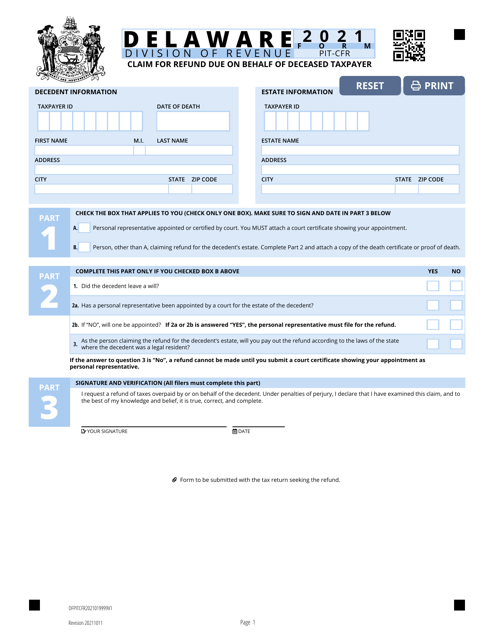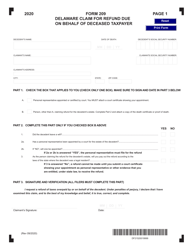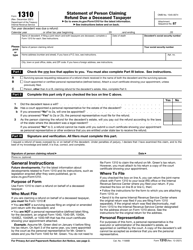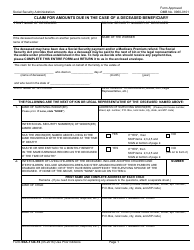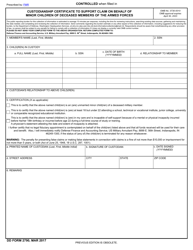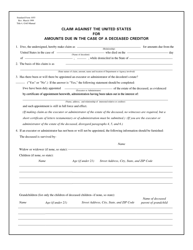This version of the form is not currently in use and is provided for reference only. Download this version of
Form PIT-CFR
for the current year.
Form PIT-CFR Claim for Refund Due on Behalf of Deceased Taxpayer - Delaware
What Is Form PIT-CFR?
This is a legal form that was released by the Delaware Department of Finance - Division of Revenue - a government authority operating within Delaware. As of today, no separate filing guidelines for the form are provided by the issuing department.
FAQ
Q: What is a PIT-CFR claim?
A: A PIT-CFR claim is a claim for refund filed on behalf of a deceased taxpayer.
Q: Who can file a PIT-CFR claim?
A: The executor or personal representative of the deceased taxpayer's estate can file a PIT-CFR claim.
Q: What is the purpose of filing a PIT-CFR claim?
A: The purpose of filing a PIT-CFR claim is to request a refund of any excess taxes paid by the deceased taxpayer or their estate.
Q: How do I file a PIT-CFR claim for a deceased taxpayer in Delaware?
A: To file a PIT-CFR claim for a deceased taxpayer in Delaware, you will need to complete and submit the necessary forms to the Delaware Division of Revenue.
Q: What documentation do I need to provide when filing a PIT-CFR claim?
A: When filing a PIT-CFR claim, you will generally need to provide supporting documentation such as the deceased taxpayer's death certificate, copies of their tax returns, and any other relevant documents.
Q: Is there a deadline for filing a PIT-CFR claim?
A: Yes, there is a deadline for filing a PIT-CFR claim. In Delaware, the claim must generally be filed within 3 years from the due date of the original tax return or 2 years from the date of the tax payment, whichever is later.
Q: Can I file a PIT-CFR claim for a deceased taxpayer if I am not the executor or personal representative of their estate?
A: No, only the executor or personal representative of the deceased taxpayer's estate can file a PIT-CFR claim.
Form Details:
- Released on October 11, 2021;
- The latest edition provided by the Delaware Department of Finance - Division of Revenue;
- Easy to use and ready to print;
- Quick to customize;
- Compatible with most PDF-viewing applications;
- Fill out the form in our online filing application.
Download a fillable version of Form PIT-CFR by clicking the link below or browse more documents and templates provided by the Delaware Department of Finance - Division of Revenue.
